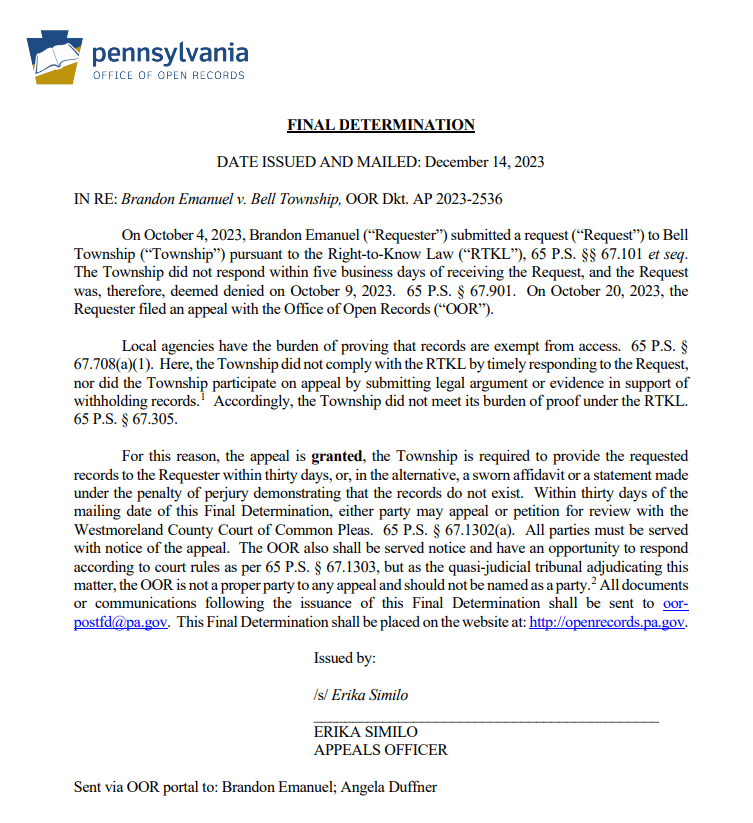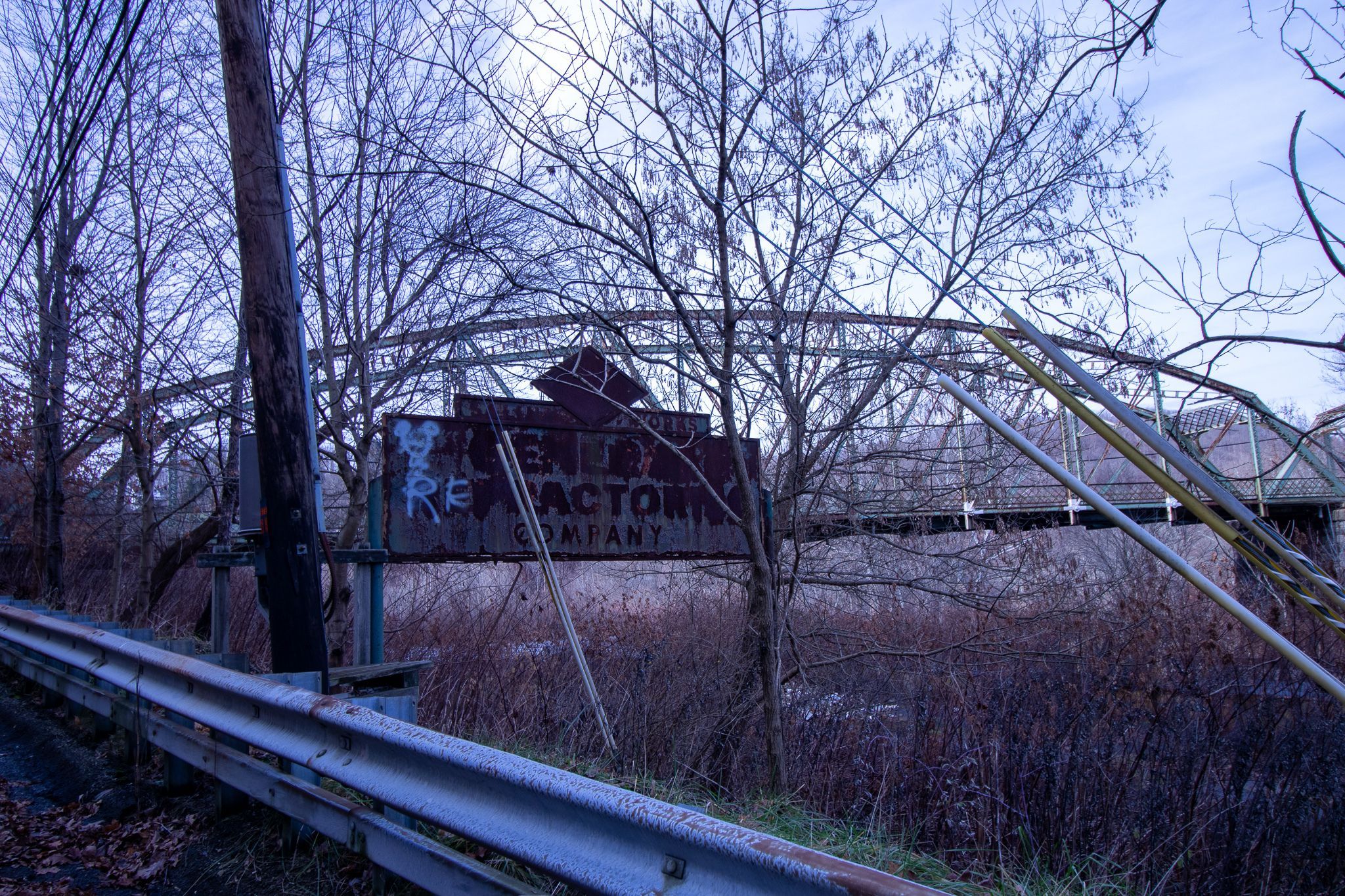Bell Township, PA – A recent case adjudicated by the Pennsylvania Office of Open Records has underscored a growing sentiment among Bell Township residents regarding transparency and accountability within local government. The case, Brandon Emanuel v. Bell Township (Westmoreland), has highlighted concerns that government operations may not always align with the community’s interests.
Case Overview
In the matter of OOR Dkt. No.: AP 2023-2536, Brandon Emanuel sought access to a report and associated costs from an engineering firm’s review of a specified property within the township. The request, aiming to shed light on municipal decision-making processes, encountered a significant hurdle as Bell Township did not respond to the request or participate in the subsequent appeal. The Office of Open Records (OOR) granted the appeal, marking a victory for transparency but also illuminating deeper issues of governmental responsiveness.
Community Response
The case’s resolution on December 14, 2023, after a record closing date of November 9, 2023, has prompted discussions among Bell Township residents about their government’s perceived opacity. Many feel that the absence of a timely and cooperative response from the township not only stifles community engagement but also erodes trust in public officials.
Residents express frustration over what they perceive as a pattern of resistance to transparency, raising questions about the governance dynamics and whether local authorities are acting in the community’s best interest. The granted appeal, while a specific instance, reflects broader concerns over access to information that is crucial for public oversight and participation in local governance.
Legal and Social Implications
The legal implications of this case extend beyond the immediate parties involved. It sets a precedent regarding the expectation for municipalities to comply with open records requests, reinforcing the public’s right to information. The mediation request and the extension granted to the OOR to issue a final determination underscore the legal mechanisms available to citizens seeking transparency.
Socially, the case has galvanized community members to demand greater accountability from their local government. Discussions in public forums, social media, and community meetings have centered on the need for a more open, participatory approach to governance that respects citizens’ rights to information.
Moving Forward
As Bell Township and its residents reflect on this case, the path forward calls for a reevaluation of how local governments engage with their constituents. The resolution of the Emanuel case may serve as a catalyst for change, prompting initiatives to enhance transparency, improve communication channels, and foster a more collaborative relationship between the township and its residents.



